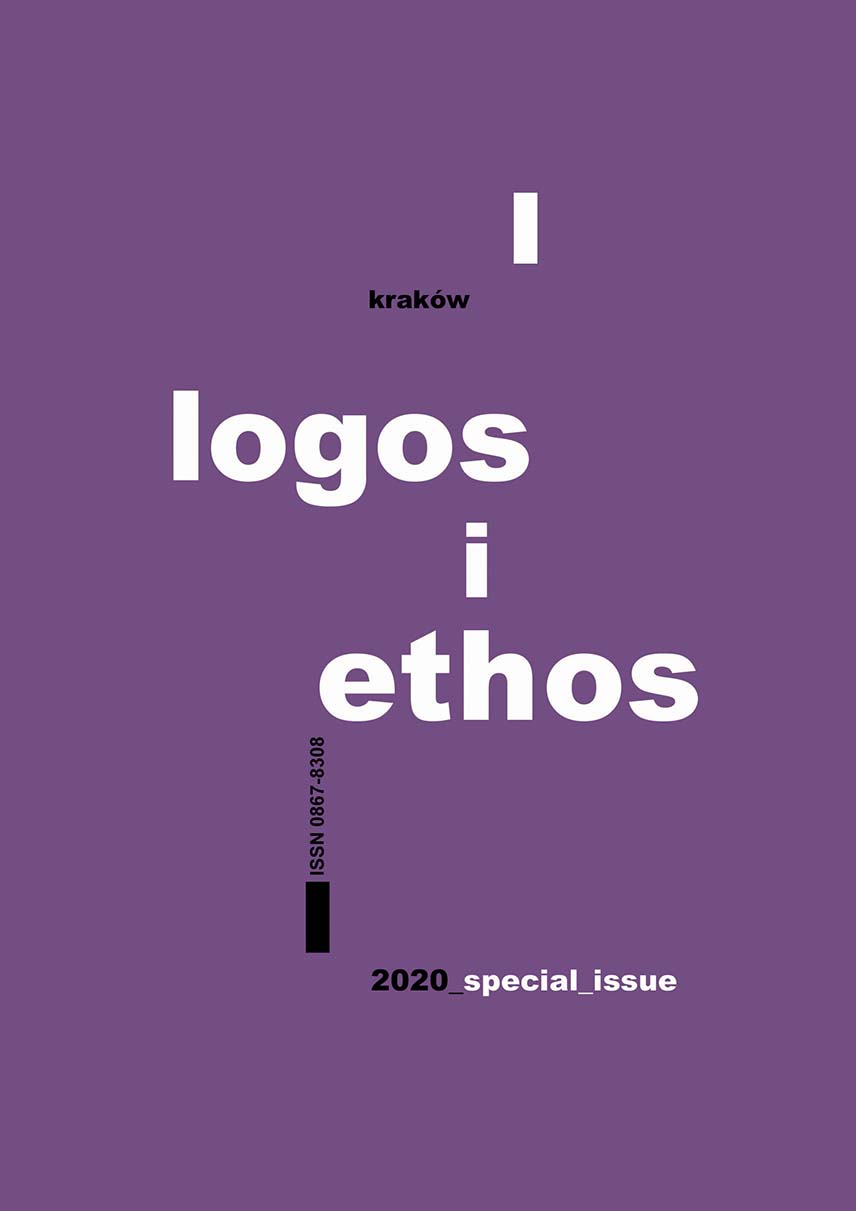Phenomenology of the Other. Paul Ricœur and Emmanuel Lévinas’ attitude towards the ontology of Totality
DOI:
https://doi.org/10.15633/lie.3766Słowa kluczowe:
Ricœur, Lé vinas, subjectivity, non-intentional phenomenologyAbstrakt
The aim of this paper is to present Ricœur’s and Lé vinas’s approach to the concept of selfhood (French soi) as a response to the dispute over subjectivity which was initiated by the critics of modern tradition of the absolutization of Cartesian cogito. The debate on the notion of selfhood has not been closed yet. The author analyses two diff erent approaches to the problem. One appeals to the Hegelian dialectic, adjusting it to the formula “oneself as another” (discounting that part of the dialectical movement in which Hegel jumps to a vision of absolute knowledge). The other refers to the category of substitution. Both Ricœur and Lé vinas point to the Platonic opposition of the notions of “the Same” and “the Other.” Ricœur’s initial claim breaks with the established language of ontology. Moving beyond the circle of sameness-identity towards the dialectic of sameness- and selfhood-identity entails the transformation of the notion of otherness: it is no longer an antonym of “same,” but it is a kind of otherness that is constitutive of selfhood.
Bibliografia
Derrida J., Przemoc i metafizyka, in: J. Derrida, Pismo filozofii, selection and foreword by B. Banasiak, trans. K. Matuszewski, P. Pieniążek, Kraków 1992, pp. 133–266.
Éthique et responsabilité. Paul Ricœur, téxtes reunis par J. Ch. Aeschlimann, Boudry-Neuchâtel 1994, pp. 35–38.
Fenomenologia francuska. Rozpoznania/interpretacje/rozwinięcia, selected texts edited by J. Migasiński and I. Lorenc, Warszawa 2006.
Heidegger M., Panowanie podmiotu w nowożytności, in: M. Heidegger, Nietzsche, vol. 2, trans. A. Gniazdowski et al., scientific ed. by C. Wodziński, Warszawa 1999, pp. 135–142.
Lévinas E., Totality and Infinity. An Essay on Exteriority, trans. A. Lingis, The Hague–Boston–London 1979.
Lévinas E., Time and the Other, trans. R. A. Cohen, Pittsburgh, PA 1987.
Lévinas E., Otherwise than Being or Beyond Essence, trans. A. Lingis, Dordrecht 1991.
Lévinas E., En découvrant l’existence avec Husserl et Heidegger, Paris 2006.
Lévinas E., Entre nous. Essais sur le penser-à-l’autre, Paris 1991.
Lévinas E., De l’évasion, „Recherches Philosophiques” 5 (1935–1936), pp. 373–392.
Lévinas E., Collected Philosophical Papers, trans. A. Lingis, Dordrecht–Boston–Lancaster 1987.
Lévinas E., Difficult Freedom. Essays on Judaism, trans. Seán Hand, The Johns Hopkins University Press, Baltimore 1990.
Ricœur P., À l’école de la phénoménologie, Paris 2004.
Ricœur P., Autrement. Lecture d’Autrement qu’être ou au-delà de l’essence d’Emmanuel Lévinas, Paris 1997.
Ricœur P., Emmanuel Lévinas, penseur du témoignage, in: P. Ricœur, Lectures, vol. 3: Aux frontières de la philosophie, Paris 1994, pp. 81–103.
Ricœur P., Heidegger i problem podmiotu, trans. E. Bieńkowska, “Znak” 1974 no. 240, pp. 778–789.
Ricœur P., Oneself as Another, trans. K. Blamey, Chicago 1992.
Ricœur P., Refleksja dokonana. Autobiografia intelektualna, trans. P. Bobowska-Nastarzewska, Kęty 2005.
Waldenfels B., L’autre et l’étranger, in: Paul Ricœur. L’herméneutique à l’école de la phénoménologie, présentation de J. Greisch, Paris 1995, pp. 327–344.
Waldenfels, B., Phenomenology of the Alien. Basic Concepts, trans. A. Kozin and T. Stähler, Evanston, Illinois 2011.
Waldenfels B., Topografia obcego. Studia z fenomenologii obcego, trans. J. Sidorek, Warszawa 2002.
Warmbier A., Spór o pojęcie intersubiektywności. Transcendentalizm etyczny a podmiotowa treść doświadczenia, “Kwartalnik Filozoficzny” 43 (2015) no. 4, pp. 45–60.
Warmbier A., Tożsamość, narracja i hermeneutyka siebie. Paula Ricœura filozofitha człowieka, Kraków 40 (Horyzonty Nowoczesności).
Pobrania
Opublikowane
Numer
Dział
Licencja
Prawa autorskie (c) 2021 Adriana Warmbier

Utwór dostępny jest na licencji Creative Commons Uznanie autorstwa 4.0 Międzynarodowe.
Autorzy publikujący w czasopiśmie udzielają jego wydawcy zgody o następującej treści:
- Autor zachowuje autorskie prawa majątkowe do utworu, a jednocześnie udziela wydawcy czasopisma zgody na jego pierwszą publikację w wersji drukowanej i wersji online na licencji Creative Commons Uznanie autorstwa 4.0 Międzynarodowe oraz zgody na wykonywanie opracowań, w tym przekładów.
- Autor ma możliwość udzielania zgody niewyłącznej na opublikowanie utworu w wersji, która ukazała się w czasopiśmie (np. zamieszczenia go w repozytorium instytucjonalnym lub opublikowania w książce), wraz z informacją o jego pierwszej publikacji w czasopiśmie.
- Autor może umieścić swój utwór online (np. w repozytorium instytucjonalnym lub na swojej stronie internetowej) jeszcze przed zgłoszeniem utworu do czasopisma.

